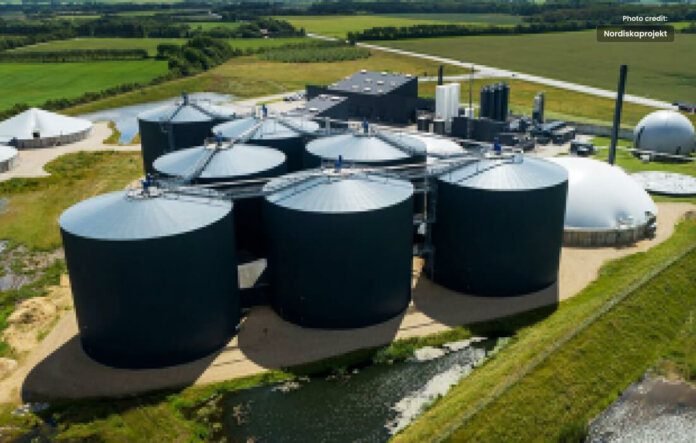Biogas: Sustainable from organic matter decomposition without oxygen.
Introduction
In the quest for sustainable energy solutions, it has emerge as a promising alternative that not only provides a renewable source of energy but also addresses environmental concerns. Biogas is a versatile fuel produce through the anaerobic digestion of organic matter, such as agricultural waste, food scraps, and sewage. Further in this blog delves into the world of biogas, exploring its production process, benefits, and the potential it holds for a greener and more energy-independent future.
What is Biogas?
Biogas is a mixture of methane (CH4) and carbon dioxide (CO2), along with small amounts of other gases, also produce when organic matter breaks down in the absence of oxygen. The primary source of biogas is the anaerobic decomposition of organic materials by microorganisms. This process, known as anaerobic digestion, occurs in biogas digesters or bio-digesters, which are specially design containers that facilitate the decomposition of waste.
The Production Process
-
Collection of Organic Waste:
This production begins with the collection of organic waste, which can be diverse, including agricultural residues, animal manure, also food waste, and sewage.
-
Anaerobic Digestion:
The collect organic waste is then place in a seal biogas digester, where it undergoes anaerobic digestion. Microorganisms present in the waste break down the organic matter, releasing methane and carbon dioxide gases.
-
Gas Storage and Utilization:
It produce is collect and store for various applications. It can be use as a clean fuel for cooking, heating, and electricity generation. Additionally, the process leaves behind a nutrient-rich slurry, called digestate, which can serve as a valuable organic fertilizer.
Benefits of Biogas
-
Renewable Energy Source:
Biogas is a renewable energy source as it is continuously produce from organic waste, making it a sustainable alternative to fossil fuels.
-
Reduces Greenhouse Gas Emissions:
The capture and utilization of biogas prevent the release of methane, a potent greenhouse gas, into the atmosphere. By using this as a fuel, we can significantly reduce our carbon footprint and combat climate change.
-
Waste Management:
Biogas production promotes effective waste management by diverting organic waste from landfills. Furthermore this, in turn, reduces the generation of harmful greenhouse gases that occur during waste decomposition in landfills.
-
Energy Independence:
It also can be produce locally, allowing communities to become more energy independent and less reliant on imported fossil fuels.
-
Fertilizer Production:
The digestate produced as a byproduct of this generation serves as an organic fertilizer, enriching the soil with essential nutrients and reducing the need for chemical fertilizers.
Applications of Biogas
-
Cooking and Heating:
In many rural and remote areas, bioga is use as a clean and efficient cooking and heating fuel, also replacing traditional biomass sources like firewood and charcoal.
-
Electricity Generation:
This can be utilize to generate electricity through biogas power plants, contributing to the grid and meeting the energy needs of communities.
-
Transportation:
It can be purify and upgrade to biomethane, which can be use as a sustainable fuel for transportation, reducing greenhouse gas emissions from vehicles.
-
Industrial Use:
It finds applications in various industries as a source of process heat or steam, also thereby reducing reliance on fossil fuels and lowering industrial carbon emissions.
Conclusion
Biogas represents a promising pathway towards a more sustainable and energy-independent future. By harnessing the power of organic waste, we can produce a renewable and clean source of energy while mitigating the environmental impacts of waste disposal. Basically Embracing biogas technology not only addresses energy challenges but also helps combat climate change and fosters responsible waste management practices. As we continue to innovate and invest in biogas solutions, we pave the way for a greener and more resilient planet.




